Ben Parkin
On the 19th of July 2016, Ben and his family's life was turned upside down in seconds.
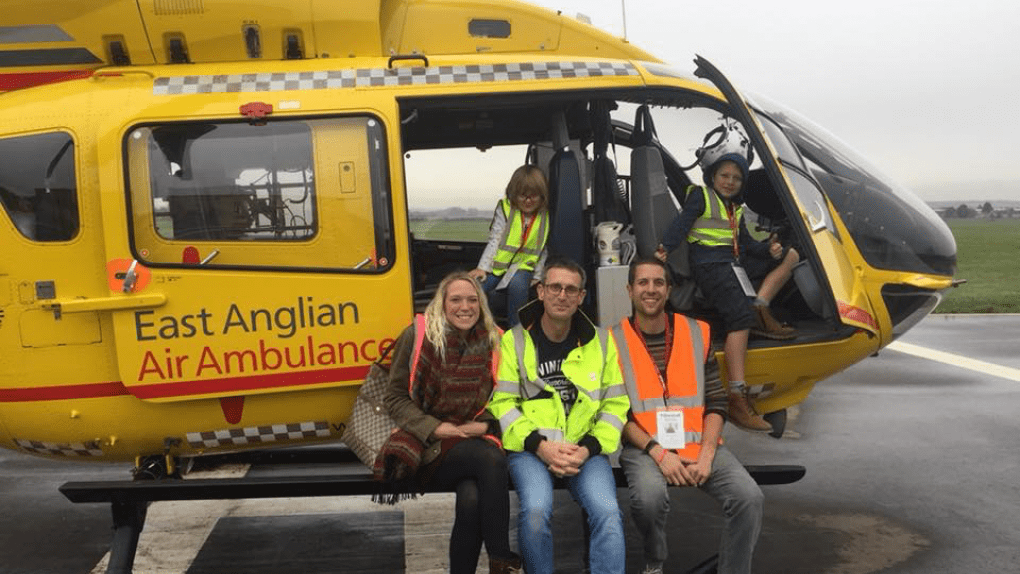
Hi, my name is Ben Parkin, I’m 34, I live near Newmarket, and I'm relatively fit and healthy. I have a truly amazing wife, two young children; Harry (8) and Emily (5) and I run a small plumbing and heating company.
On the 19th of July 2016 mine and my family’s life was turned upside down in seconds.
We were all excited and looking forward to going on our summer holiday the following week. My wife and I woke up on Tuesday morning just after 7am and the kids jumped into bed with us for a morning cuddle. My world stopped from that point!
My son, 6 at the time, said to my wife in a slightly alarmed voice “Daddy’s just wet the bed.” My wife looked over to see me purple and stiff - I had gone into cardiac arrest.
I can’t imagine what must have gone through my wife’s mind at the time, I’m still in awe of her composure and calm response considering she had no previous medical training or knowledge. She managed to swiftly usher the children into their rooms, keeping them calm, and call 999.
The East of England Ambulance Service Trust (EEAST) immediately put the call through to EAAA and at 07.54 the crew were tasked. My wife was told to get me onto the floor and start performing cardiopulmonary resuscitation (CPR).
At 08.04 the EEAST ambulance arrived shortly followed by EAAAs crew at 08.14. Doctor Marcel Rigaud and Critical Care Paramedic Gary Spitzer took over my care - I was defibrillated, put into an induced coma to protect my brain and intubated so the team could take over my breathing.
My wife and family were by my side every step of the way, ever hopeful that there was something left of the old me hiding behind all of the pipes and tubes I was hooked up to.
I spent a week in the intensive care unit at Papworth Hospital before I was brought out of my coma. I had absolutely no memory of what happened - it came as a shock to be in Papworth, let alone to be told that I had died! My head felt heavy and I knew it would be a long journey from here, but I was happy to be alive and with my wonderful family, that was all I needed.
“If it wasn’t for the swift actions of my wife and the fast response time of EAAA my story would simply be another statistic. The smallest of things bring so much satisfaction and joy to me now, a smile from my children could simply bring tears to my eyes. ”
Patient
The weeks passed and I was finally discharged from hospital with the new addition of a subcutaneous implantable defibrillator (S-ICD) fitted under my skin.
I found a growing group of other cardiac arrest survivors on Facebook as well as peer support groups; Sudden Cardiac Arrest UK and SADS (sudden arrhythmic death syndrome), who all helped me to make sense of my situation and what had happened. It was amazing to know there were other people in the same boat as me.
Last summer I travelled to London to meet the people behind the screens of these groups, it was great to finally talk to other normal people like me who have suddenly been affected by a cardiac arrest.
I’ve always taken life with a pinch of salt, joking around with one of the group organisers we chuckled about how many ‘dead but still alive’ people we could to get in one room – that’s when our Guinness World Record attempt began.
On the 9th of June this year (2018) alongside SADS and the Basildon Hospital CTC unit we managed to officially complete a world record for the largest gathering of cardiac arrest survivors in one room (there were 127 in total).
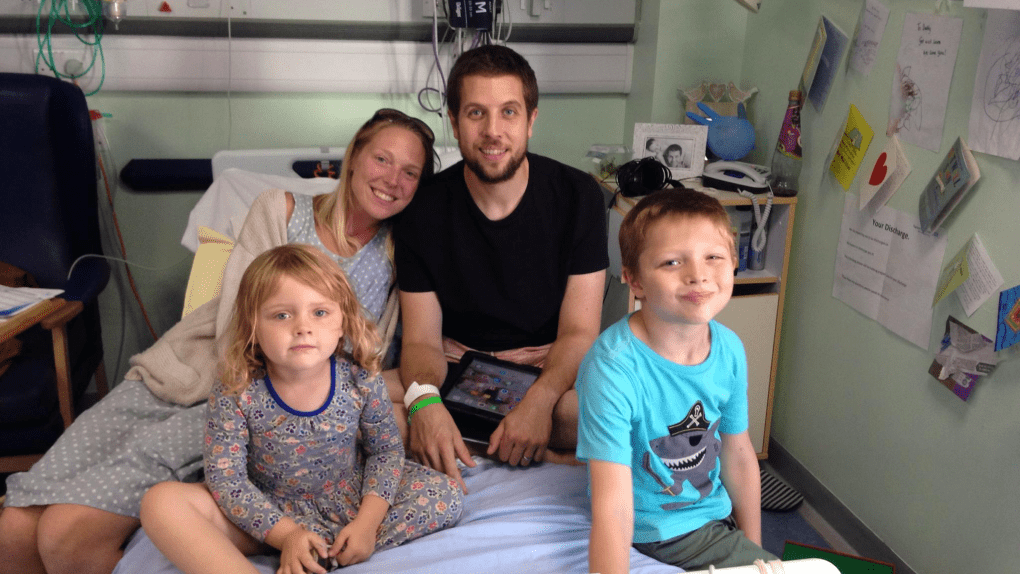
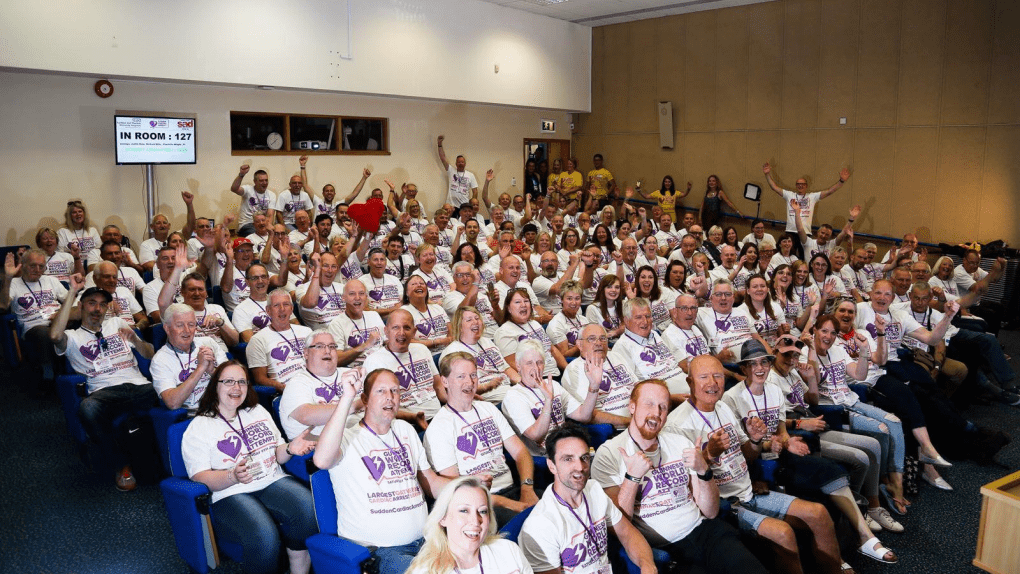
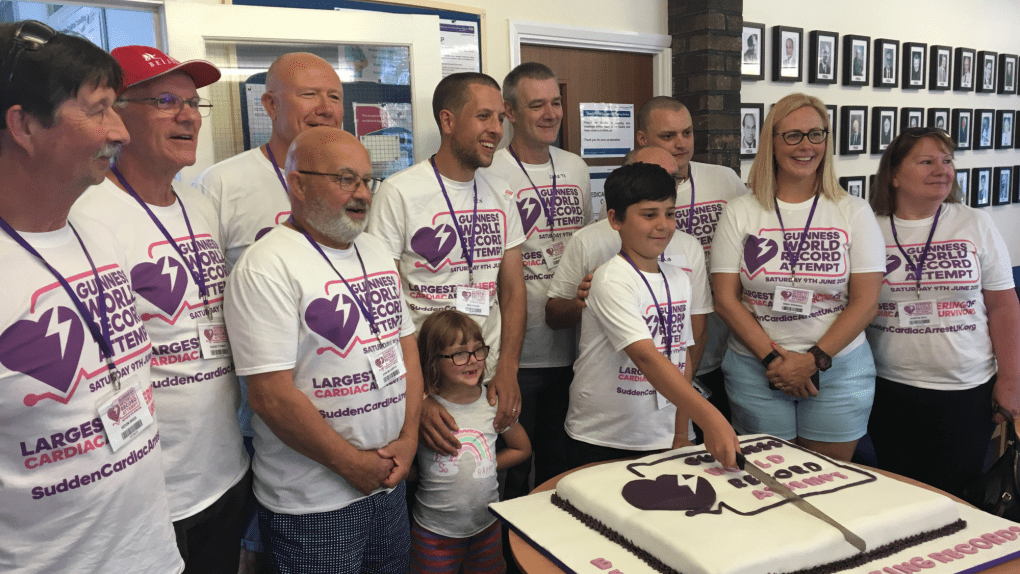
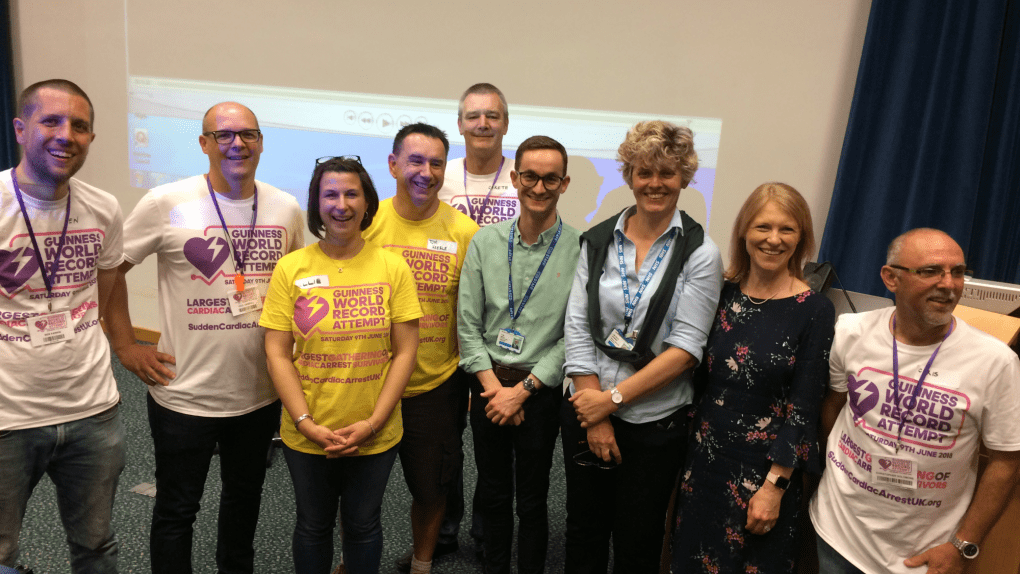
“From my experience, if I can ask you to do one thing it would be to learn CPR and support your local air ambulance. By performing immediate CPR on a person in cardiac arrest you could treble their chances of survival. I feel honoured to be alive and believe life is a gift. A true thanks with all of my (slightly tired) heart to firstly my wife, and also the prompt work of EAAA, without which I’d be gone for sure. ”
Patient
Every year approximately 30,000 people suffer a cardiac arrest whilst at home, work or play.
Only about 40% of these receive any form of bystander CPR before the arrival of the ambulance service and less than 20% have a defibrillator deployed before emergency services arrive.
Early bystander CPR trebles the chances of surviving a cardiac arrest. Coupled with the early use of a defibrillator this can improve survival to between 40-70%. EAAA always has the interest of the patient at its heart and that is why our ongoing vision is to minimise trauma in the community by providing life-saving first aid skills to as many people as possible in East Anglia.
How we work to make a difference
Effective Response
With the combination of a quick response time, advanced critical care on scene and quick transfer to the appropriate hospital, our mission is to save more lives across East Anglia.
First Aid
We're aiming to minimise the impact of trauma in the community by providing vital first aid training, so more people can take action if someone nearby suffers a medical emergency.
Aftercare
The missions we attend are often life-changing for our patients. By offering dedicated aftercare support, we're helping more of our patients and their families with their recovery journeys.
Partnerships
By developing partnerships and collaborations with local organisations who have aligned ambitions to ours, we can continue to do the very best for each and every patient we treat.